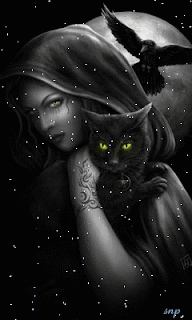New Dawn Magazine: Was the New Age a fad? Was it a noble but misguided hope that the world was ready for an enlightenment to which it now seems indifferent or hostile? Probably neither. More likely this is the case: much of what the New Age pioneered, including yoga, meditation, and organic foods, has become mainstream. Thus you could say the New Age won out in many ways – but at the cost of seeming fresh.
What about its ideas? Many of them too entered the mainstream and have even become clichés. At this point it may be useful to step back and look at some of the clichés of the New Age and see how well they stand up.
Let’s start with the phrase “New Age” itself. It goes back far beyond the ’60s, even beyond the turn of the twentieth century. It first started being used in 1864, when an American clergyman, Warren Felt Evans, published a book entitled The New Age and Its Messenger. Evans was propounding the ideas of the great Swedish visionary Emanuel Swedenborg (1688-1772).
In the 1740s Swedenborg underwent a series of spiritual awakenings that, he said, gave him access to the invisible realms and to the hidden meanings of Scripture. One of his most remarkable claims was that the Last Judgment of the Bible had no resemblance to the way it was seen by conventional Christianity. It was never meant to mean Christ’s second coming on earth. In fact it took place entirely in the world of spirits, a realm which, in Swedenborg’s theology, occupies a middle place between heaven and hell and serves as a clearinghouse for the newly deceased. This spirit realm had accumulated a great deal of debris, such as base and mean entities, and it needed a housecleaning.
Since the nineteenth century, Swedenborg has faded into comparative obscurity, and Evans, once a best-selling author, has been almost completely forgotten. But the term “New Age” was given new life in the twentieth century by figures such as the British esotericist Alice Bailey, and, as we have seen, the New Age as an ideal reached its own peak in the late twentieth century.
To go back to the initial question: how much truth is there in this idea of a New Age?...read more>>>...
Welcome to "A Light In The Darkness" - a realm that explores the mysterious and the occult; the paranormal and the supernatural; the unexplained and the controversial; and, not forgetting, of course, the conspiracy theories; including Artificial Intelligence; Chemtrails and Geo-engineering; 5G and EMR Hazards; The Net Zero lie ; Trans-Humanism and Trans-Genderism; The Covid-19 and mRNA vaccine issues; The Ukraine Deception, Flat Earth, Tartaria ... and a whole lot more.
